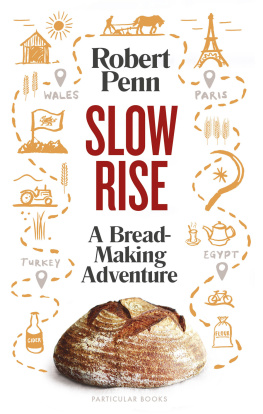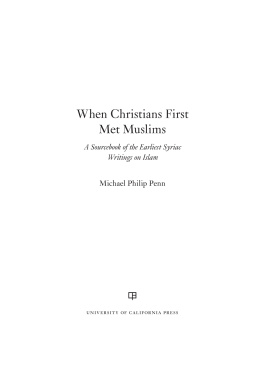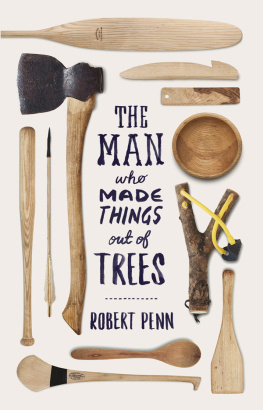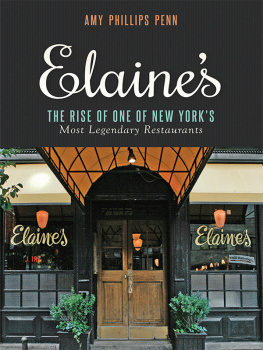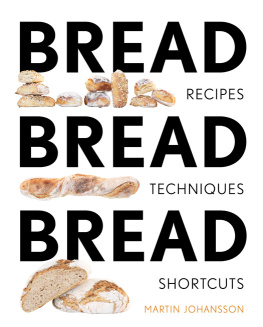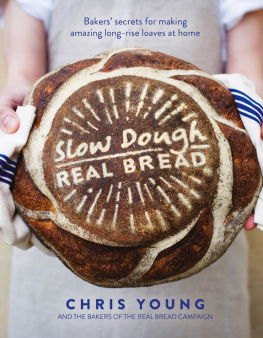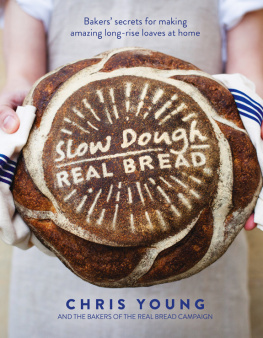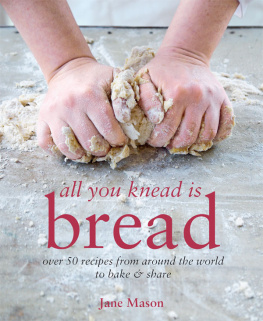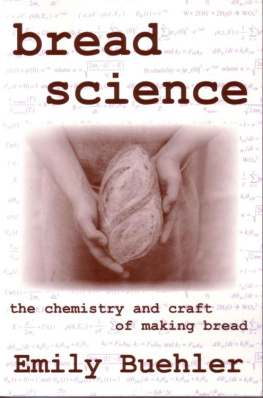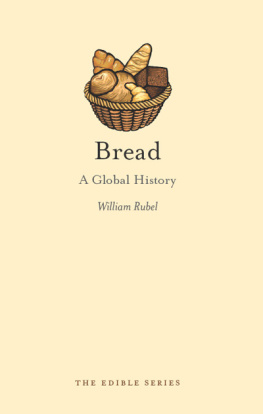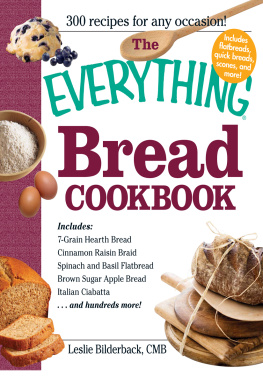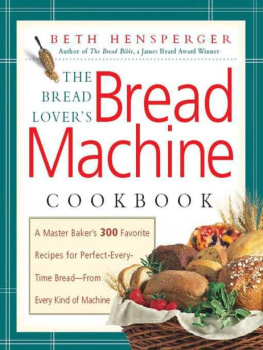Robert Penn
SLOW RISE
A Bread-Making Adventure

PENGUIN BOOKS
UK | USA | Canada | Ireland | Australia
New Zealand | India | South Africa
Penguin Books is part of the Penguin Random House group of companies whose addresses can be found at global.penguinrandomhouse.com.

First published by Particular Books in 2021
Text copyright Robert Penn, 2021
The moral right of the author has been asserted
Cover image Getty Images
Cover design: Richard Green
ISBN: 978-0-241-35209-0
This ebook is copyright material and must not be copied, reproduced, transferred, distributed, leased, licensed or publicly performed or used in any way except as specifically permitted in writing by the publishers, as allowed under the terms and conditions under which it was purchased or as strictly permitted by applicable copyright law. Any unauthorized distribution or use of this text may be a direct infringement of the authors and publishers rights and those responsible may be liable in law accordingly.
For my mum,
who taught me long ago that sitting round
a table, breaking bread with the people you love, is
the best of life.
With bread all sorrows are less
Miguel de Cervantes

PROLOGUE
Flour, Yeast, Water & Salt
The need of the immaterial is the most deeply rooted of all needs. One must have bread; but before bread, one must have the ideal. Victor Hugo
Though Tark Yldz had the cherubic face of a small boy staring out of an aeroplane window on a runway approach, he drove the car like a getaway driver. We thundered down the road to Siverek. The peaks of the Taurus Mountains gleamed white against the azure Anatolian sky. Storm clouds were gathering to the south over the Harran Plain, a great sweep of rich, agricultural land with biblical resonance. We passed small forestry plantations, pistachio and almond orchards, variegated basins with irrigated fields and great, bare plateaus where the wind reigned. As we sped north-east, limestone hummocks gave way to hillsides of reddish, grey and black basalt rocks. In places, the rocks had been piled up into boundary walls, creating small fields the colour of dark chocolate. Cresting one of the rolling ridges at speed, Tarks hands sprang off the wheel and pointed to the horizon. There it was a huge, horizontal arc of fractured volcanic rock protruding from the skyline, like the vertebral column of a buried stegosaurus the Karacada massif.
Tark is a friend of a friend of a friend. He grew up in the village of rencik, near the city of anlurfa, a stones throw from Gbekli Tepe, one of the oldest and most extraordinary archaeological sites on the planet. Like the majority of the population in this corner of Anatolia, Tark is an ethnic Kurd, the stateless nation of thirty million people who live across the high mountains and plains of Syria, Turkey, Iran and Iraq. I had recruited him to help me search for wild wheat on the slopes of Karacada. And though he clearly thought the enterprise was strange, our distant alliance bound him to assist me. He also had an old friend from university who lived in the city of Siverek, near the foot of the massif we were to climb. Berzan Karada had a degree in archaeology. He would know the way not only to the summit, but also to the best restaurant in Siverek, for the celebratory dinner I had promised when we descended. Siverek, Tark kept telling me, was famous for its bread.
Karacada rises over the apex of the Fertile Crescent, the sickle-shaped territory of the ancient world known as the cradle of civilization that includes modern Iraq, western Iran, south-east Turkey, Syria, Lebanon, Israel, Jordan and Egypt. Some 15,000 years ago, part of this region was occupied by Natufians, a diverse community of hunter-gatherers united by a shared culture. Natufians were the first humans to adopt a semi-sedentary way of life, and the first people on earth to bake bread.
In 2017, the discovery of charred food remains in a fireplace at a hunter-gatherer site called Shubayqa 1, in a desolate area of eastern Jordan called the Black Desert, dated the preparation and consumption of flatbread-like products made from cereals and plant roots to around 14,400 years ago. Under analysis using scanning electron microscopes, the structure of the bread-like fragments in the remains indicated they had been extensively processed. Cereal and non-cereal components had been threshed, winnowed, milled and possibly sieved, before being mixed with water into a form of dough and cooked. Of course, the absence of evidence is not evidence of absence. Bread might have become part of the human diet even earlier, but as far as empirical data goes, this is the beginning of bread.
During the silent millennia, in the aeon of prehistory, humankind subsisted by hunting and gathering. We emerged as anatomically modern humans around 150,000 years ago and it is reasonable to assume we have been eating seeds from wild grasses ever since. Grasses from the Poaceae (or Gramineae) family, which occupy over half of the planets habitable landmass, are particularly good at collecting solar energy and re-configuring it into a form of biomass that happens to be nourishing to us. Sorghum residues found on stone tools in a cave in Mozambique have been dated to 105,000 years ago. We know barley was in the diet of Neanderthals, the extinct subspecies of humans, 50,000 years ago. There is evidence that grinding stones, used for a variety of everyday chores including processing cereal grains, became common 15,000 years ago. Carbonized grain fragments found at sites throughout the Eastern Mediterranean show that wild wheats became part of the diet of hunter-gatherers around the same time, in the form of a rudimentary gruel or porridge of pounded grains mixed with water. It would have been a small step, and the logical finale to a sequence of cereal-related human activities gathering, grinding or crushing, then soaking and mixing to actually baking bread, either on hot, flat stones, or in the ashes of a fire.
Shubayqa 1 was occupied by Natufians. In processing and baking wild cereal grains, they created a foodstuff that was more appealing in several ways. Bread would have smelt, looked and tasted better than the porridge they were familiar with. It would also have been easier to digest and more nutritious. Evidence from Shubayqa 1 and other archaeological sites in the region suggests bread was a rarity though, rather than a dietary staple. It might have been an elite foodstuff for the Natufians, prepared only on special occasions or for ceremonial purposes. Perhaps, because the process took time and energy, people couldnt be bothered to make bread regularly, rather like today.
The wheat plants collected around Shubayqa 1 and processed to make bread were wild grasses, part of a family of plants that grew in thick stands on heavy soils in the hill country of the Fertile Crescent. Slowly, over millennia, the Natufians came to rely on these wild grasses more and more, perhaps as the nomadic impulse of their ancestors began to fade. They manufactured better tools for harvesting them, including sickles with flint blades set in bone handles, and they followed the grasses to new areas, establishing their semi-permanent base camps wherever plant food resources, particularly wild wheats and barley, were plentiful.

